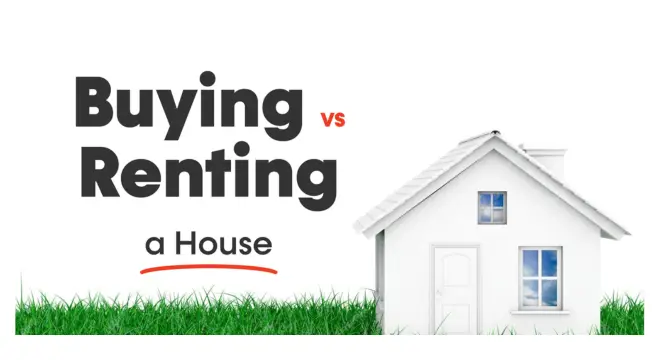First-Time Home Buyer Tax Credit 2025: Everything You Need to Know
Planning to buy your first home in 2025? Heard about the First-Time Home Buyer Tax Credit but unsure if you qualify? Want to save thousands on your first home purchase?
If you find yourself asking any of these questions, you’re in good company. As we approach 2025, a lot of first-time buyers, are on the lookout for how to make home ownership more affordable. Home prices and rising interest rates are still pushing home ownership out of reach for many, so it is great that there is a new tax credit to help.
The First-Time Home Buyer Tax Credit is invigorating for many since the benefit that can come from the credit, can make home ownership that much closer.The tax credit has gained traction in social media by people looking for more information, and starting to talk about it in ways we haven’t seen in a long time.
Let’s explore why this credit has become such a hot topic this year and how it could help you.
What is the First-Time Home Buyer Tax Credit?
Simply put, the First-Time Home Buyer Tax Credit is a special benefit the government offers to people buying their first home. It helps you save money by giving you a credit that reduces the amount of taxes you owe. Think of it as a reward for making that big step into homeownership!
How much money can you claim?
By 2025, you should be able to claim as much as $15,000 in this tax credit. Depending on your situation, you may not get as much, but this tax credit can really lower the cost of buying a first-time home.
Tax Credit vs. Tax Deduction
Now, you might be wondering, “What’s the difference between a tax credit and a tax deduction?” Good question!
- A tax credit directly reduces the amount of tax you owe. So, if you owe $5,000 in taxes and you qualify for a $2,000 credit, you only need to pay $3,000.
- A tax deduction, on the other hand, reduces your taxable income. It’s like lowering the total amount the government taxes you on.
History or Revival of the Program
This tax credit isn’t something new. It was reinstated for 2025 after a few years of being absent, mainly to provide financial assistance to address the rising cost of home prices and interest rates. It is the government’s way to provide better access to first-time buyers of homes in these difficult times.
Who is Considered a “First-Time Home Buyer”?
So, what does “first-time” mean exactly? Well, you do not have to be a person who has never owned a home. If you have not owned a home in the past 3 years, you can still be classified as a first-time home buyer.
Here are scenarios in which a person may think he/she is not eligible, but is:
- If you have owned a home, and have been renting the last 3 years, you count as a first-time home buyer.
- If you sold a home some time ago and are now buying another one, you may qualify for the credit.
Married Couples, Co-buyers — how this applies: If you are married, and both are first-time home buyers, then you are both eligible for the credit. The same situation applies with co-buyers — if you are buying the home with a friend or family member, and it is the first for both of you, you would both qualify for the tax credit.
Eligibility Criteria in 2025
To qualify for the First-Time Home Buyer Tax Credit in 2025, you must meet the following requirements:
- U.S. Citizenship or Legal Residency: You must be a U.S. citizen or a legal resident.
- Age Requirement: Applicants must be at least 18 years old.
- Primary Residence: The home you purchase must be your primary residence.
- Income Limits: Your modified adjusted gross income should not exceed 160% of the area’s median income. For instance, in Columbus, Ohio, with a median income of $60,000, single buyers must earn less than $96,000 annually to qualify.
- Home Price Caps: The home purchase price must not exceed 110% of the median home value in your area. For example, if the median home price in your area is $300,000, the maximum eligible purchase price would be $330,000.
- Mortgage Types: The credit applies to various mortgage types, including FHA, VA, and conventional loans.
Please note that these guidelines are based on current proposals and may be subject to change. It’s advisable to consult with a tax professional or housing authority for the most up-to-date information.
How to Apply for the Tax Credit
When & How to Claim:
You can claim this tax credit during your annual federal tax filing. Every year, when you file your taxes, you can apply for this credit.
Required Documents:
- To apply for the tax credit, you’ll need to submit a few important documents:
- Purchase Agreement: This is the agreement or sale document when you buy your home.
- Proof of Mortgage: You’ll need to show proof that you have taken out a mortgage for the home.
- Government ID: A valid government ID (like a driver’s license or passport) will be required.
Relevant IRS Form:
You’ll need to use IRS Form 5405 (if still applicable). This form is used to claim the tax credit.

Common Mistakes and Myths
There are a few common mistakes and myths when it comes to the First-Time Home Buyer Tax Credit. Let’s clear them up:
“I already owned a house 10 years ago — so I can’t apply.”
Actually, you might still be eligible! If you haven’t owned a home in the past 3 years, you can qualify, even if you owned a home 10 years ago. It’s all about the time that’s passed, not whether you’ve ever owned a home before.
“It’s only for young people.”
This is a myth! The tax credit is not age-dependent. It’s available for any first-time home buyer, no matter your age, as long as you meet the other eligibility criteria.
“It happens automatically.”
Unfortunately, the tax credit doesn’t apply automatically. You need to actively apply for it when you file your taxes, and you’ll need the right documents to claim it.
State-Level First-Time Buyer Programs
Apart from the federal First-Time Home Buyer Tax Credit, many states offer additional help for first-time buyers. These can make the home-buying process even easier and more affordable.
Some of the state-level programs include:
- Grants: Free money that doesn’t need to be paid back, which can help with down payments or closing costs.
- Lower Interest Loans: Some states offer loans with lower interest rates, making your monthly payments more affordable.
- Property Tax Exemptions: A reduction in the property taxes you pay, saving you money each year.
It’s a great idea to check out your own state’s housing department website to see what specific programs are available where you live. Many states have unique offers that could give you extra financial support!
Conclusion
To wrap it up, the First-Time Home Buyer Tax Credit offers some great benefits. Not only can you save up to $15,000 on your home purchase, but this isn’t just a tax perk — it’s real money that goes right back into your pocket.
So, don’t miss out! Take action now by checking if you’re eligible, planning your purchase wisely, and talking to a tax expert to make sure you’re on the right track.
Buying your first home is a big step, and this tax credit can make it a little easier. Get started today!
More information you can visit this site: homebuyer


